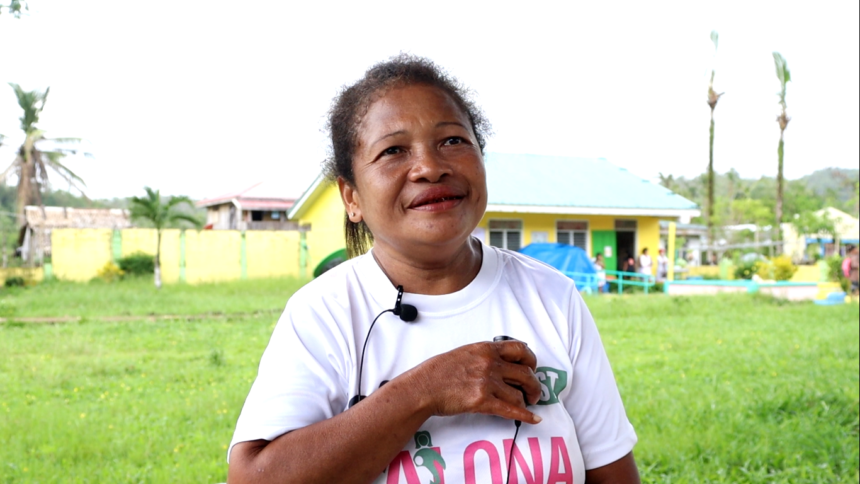Aling Melba an old woman from Dumagat tribe told us; “We don’t want to evacuate sometimes, because we will only be blamed if something goes missing”
The blazing midday sun shone relentlessly on the green meadows of Sitio Kumunoy, Brgy. Anibawan, one of the most remote communities one would ever think existed. Brgy. Anibawan is situated in the municipality of Burdeos, a 4th class municipality in the province of Quezon, which is home to thousands of Dumagat, an ethnic group in Luzon. It takes about eight hours of travel from the capital city to reach the distant island of Polillo, and another two-hour boat ride to reach Brgy. Anibawan. Because of its distance, the area seems to be left behind. People who live here remain without access to basic social services such as potable water, electricity, and basic health care services.
On a hot afternoon, as we sat down on an old monoblock chair to talk, through masks and a meter apart, Melba Torgo’s tears welled up as she told her story. Aling Melba is 46 years old, and a pure Dumagat. She has four children whom she raised through fishing and farming. Aling Melba thought they had seen the worst, until Typhoon Karding hit in September of this year, leaving traces of destruction they will never forget. Most of their homes are on higher ground, but the heavy rains poured non-stop raising the water level and flooding nearby houses. The typhoon, she said, was one of the strongest to hit their community, displacing many of them and uprooting their livelihoods,
“Deep inside, I am praying that the Lord may give me more strength and for the rains to stop,” said Melba. She recalled how her husband was surprised by the rapid rise of the raging flood and how they paddled swiftly literally against the wrathful waters to survive. Melba lost everything to the storm, including their livestock and the crops that were ready for harvest. She only saved something that she knew was very important to her, her Salbutamol capsules. Largely isolated from the mainland, Melba and her tribe live off the cultivated land and forests. They relied solely on nature to survive. The wild rivers that surround their barangay give life to the community, but also threaten their safety during typhoon season.
“I have never seen such a big flood. We are so traumatized that even a little rain makes us anxious,” Melba said.
Aside from being vulnerable to disasters, Dumagats often experience an added burden of discrimination, which puts them at high risk of being unable to manage crises, including extreme weather events related to climate change. In the evacuation center, where they are supposed to be safe from any danger brought by the typhoon, ironically, they are not shielded from the prying eyes of the hypercritical society. Most of their tribe members do not want to leave their homes during a disaster as they often experience discrimination in the village they live in. Melba said that they are often accused of stealing whenever something goes missing. Whenever there is a relief distribution in their barangay, they also often return home empty-handed as they are not on the list of beneficiaries. According to Melba, their group decided to descend from the mountains and live in the lowlands as help was nowhere to be found and they would starve.
“We are no longer expecting to receive assistance, Ma’am. We are always not on the list even though we are from here,” the impoverished woman told us while wiping her tears.
She added that they have nothing left to eat. Their food stocks such as taro and sweet potatoes were rotting after being soaked in flood waters. For poor families like Melba’s, who have no stable means of livelihood, the effects of the typhoon are debilitating because they have very little means to lean on, sometimes none at all.
CDRC, together with the Southern Tagalog People’s Response Center, Inc. (STPRC), delivered relief assistance to the isolated barangay of Anibawan in Burdeos, Polillo Island. It aimed to alleviate the sufferings of families severely affected by super typhoon Karding (I.N Noru). Melba is one of the first ones in the queue to collect her food pack, and other basic goods, such as hygiene and mother’s kits. The support they received will tide them over for the next two weeks.
“I am very thankful to CDRC and WJR for helping us,” Melba said while carrying the food packs she received.
Melba is one of the 400 families in Polillo Island, who received aid from CDRC through the generous support of the World Jewish Relief (WJR).

